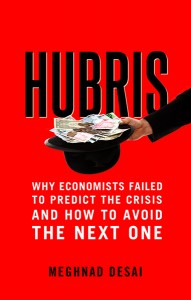I’ve started reading [amazon_link id=”0300213549″ target=”_blank” ]Hubris: Why economists failed to predict the crisis and how to avoid the next one[/amazon_link], by Meghnad Desai. It has this great quotation I’d forgotten (some time since I read it) from Adam Smith’s [amazon_link id=”0143105922″ target=”_blank” ]Theory of Moral Sentiments[/amazon_link]:
“The man of the system …. seems to imagine that he can arrange the different members of a great society with as much ease as the hand arranges the different pieces upon a chess-board. He does not consider that the pieces upon the chess-board have no other principle of motion besides that which the hand impresses upon them; but that, in the great chess-board of human society, every single piece has a principle of motion of its own, altogether different from that which the legislature might chuse to impress upon it.”
Echoes, too, of the fabulous [amazon_link id=”B00D8JJYWA” target=”_blank” ]Seeing Like A State[/amazon_link] by James Scott.
[amazon_image id=”0143105922″ link=”true” target=”_blank” size=”medium” ]The Theory of Moral Sentiments (Penguin Classics)[/amazon_image] [amazon_image id=”B00D8JJYWA” link=”true” target=”_blank” size=”medium” ]Seeing Like a State: How Certain Schemes to Improve the Human Condition Have Failed (The Institution for Social and Policy St)[/amazon_image]

